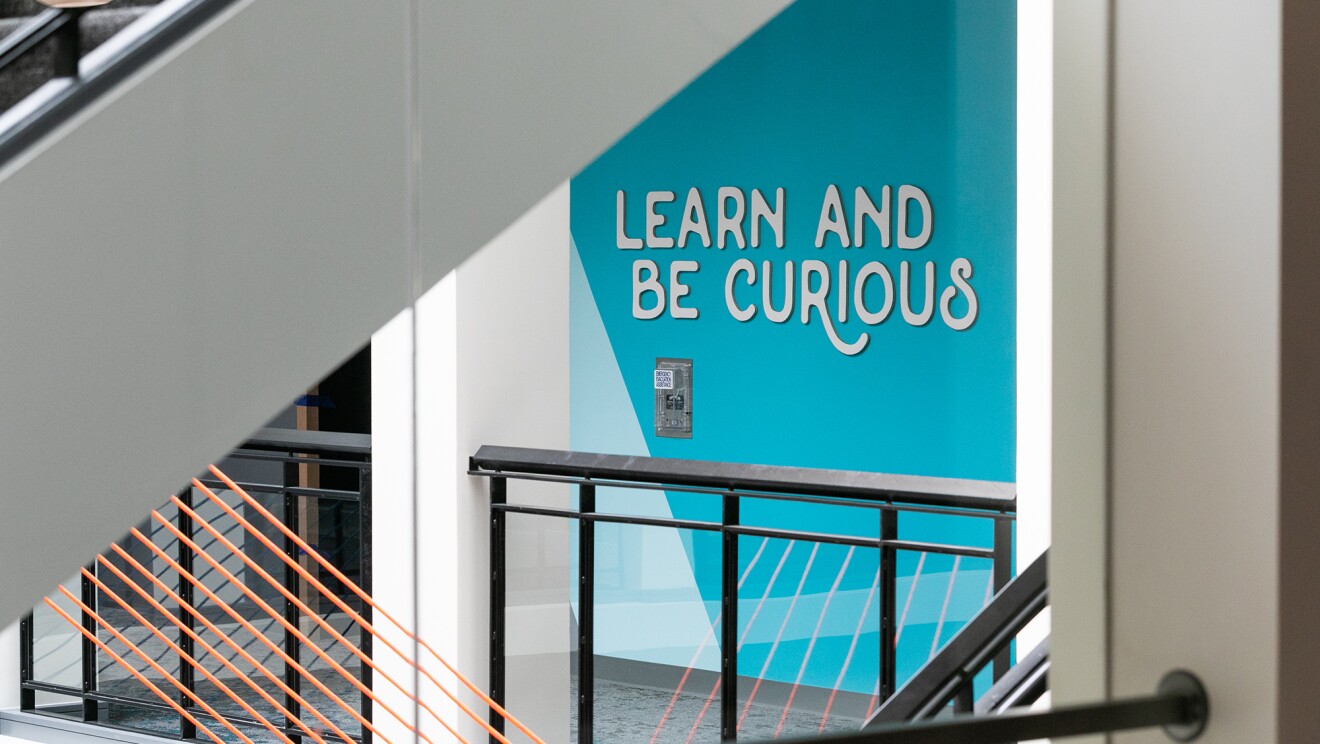We aspire to make interviewing at Amazon as frustration-free as our shopping experience. That's why we go to great lengths to provide candidates with comprehensive resources and guidance throughout the process. This includes answers to frequently asked questions, insights into our culture, and detailed information on each stage of the interview. From the critically important role of your recruiting partner to the company's unique approach to evaluating potential hires, here's an in-depth look at what it takes to nail your Amazon interview.
1. The recruiting partner as your champion
If you are one of those candidates who view your recruiting partner as simply a gatekeeper standing between you and your Amazon job, then you are mistaken. In reality, this individual should be seen as an essential ally and guide throughout the entire process. Your recruiting partner will serve as a valuable resource, providing a steady stream of information, advice, and preparation tips. They may even offer to meet with you virtually before key interview stages to walk through the format, common questions, and strategies for highlighting your fit.
One surprisingly helpful tool your recruiter can provide is a deep dive into Amazon's Leadership Principles. These 16 tenets form the foundation of the company's culture and values, and they will be the lens through which your interviewers evaluate you. Taking the time to thoroughly understand the Leadership Principles and how you've embodied them in your career can give you a major advantage.
2. Mastering the STAR format of interviewing
As a data-driven organisation, Amazon relies heavily on behavioural interviewing to assess candidates. This means your interviewers will pose questions about specific past experiences and how you handled them. The preferred format for responding is called STAR: Situation, Task, Action, Result. By structuring your answers this way, you can provide clear, well-organised examples that showcase your relevant skills and competencies.
The "Situation" component sets the context - describe the specific challenge, project, or scenario you were faced with. Provide enough detail for the interviewer to understand the full scope and complexity of the situation.
Next, explain the "Task" - what were you trying to accomplish? What were the key objectives you needed to achieve?
Then, walk through the "Action" you took. This is where you can highlight the strategic steps you implemented, the skills you leveraged, and the creative problem-solving you employed.
Finally, share the tangible "Result" - the measurable outcomes and impact of your efforts. Quantify your achievements whenever possible to demonstrate your decision-making prowess and ability to drive results.
By using the STAR format, you can craft compelling, structured responses that give your interviewer a comprehensive understanding of your experiences and qualifications. It's a framework that allows you to thoughtfully organise your examples in a way that aligns with Amazon's data-driven approach.
The Importance of curiosity and follow-up: One common mistake candidates make is failing to ask thoughtful questions during the interview process. Amazon values intellectual curiosity, so use this as an opportunity to learn more about the role, the team you'd be joining, and how you could contribute.
3. Embracing the Leadership Principles
As mentioned earlier, Amazon's Leadership Principles are central to the company's culture and hiring process. Interviewers will be assessing not just your functional skills, but how well you embody these 16 principles through your experiences and decision-making. They encompass values like Customer Obsession, Ownership, Invent and Simplify, and Bias for Action. Collectively, these principles shape the DNA of the organisation and are woven into every aspect of the business.
When you interview at Amazon, the interviewing panel will be keenly observing how you demonstrate alignment with these core tenets. They aren't just looking for the right technical or functional skills - they want to see evidence that you can thrive within the company's unique culture and way of working.
To prepare, take the time to thoroughly review and reflect on each of the 16 principles. Consider specific examples from your professional experience that illustrate how you've embodied these values, whether it was through bold decision-making, a relentless focus on the customer, or a willingness to challenge the status quo. Being able to articulate these examples in a clear, compelling way will show your interviewers that you don't just understand the principles, but can put them into practice. This can give you a significant advantage over other candidates who may have the right skills on paper, but lack the cultural fit that Amazon so deeply values.
Ultimately, the Leadership Principles aren't just words on a wall - they're a driving force behind Amazon's success. Embracing them as your own can make all the difference in positioning yourself as the ideal addition to the team.
4. Understanding the role of Bar Raisers
Bar Raisers are highly trained interviewers who play a critical role in Amazon's hiring process. Unlike other interviewers who may be more focused on evaluating your fit for a specific role, Bar Raisers take a more holistic, objective view. They're tasked with determining whether you have the skills, experiences, and growth mindset to exceed the performance of your would-be peers in similar positions.
During your interactions with a Bar Raiser, you can expect them to dig deeper into your background, probing for evidence that you can consistently raise the bar. The goal is to bring objectivity to interviews and help make sure every new hire has growth potential and brings skills and abilities that are better than 50% of their peers in similar roles. By having an objective third party involved in the interview process, our hiring process ensures that new hires are truly aligned with the Leadership Principles and positioned to succeed.
5. Celebrating failures and growth mindset
Amazonians are known for challenging the status quo and driving innovation through calculated risk-taking. In fact, some of the company's most successful initiatives have emerged from the ashes of failed projects. Failure is viewed not as a weakness, but as a necessary step on the path to breakthrough solutions. So, do not be surprised if your interviewers ask you about the times you've taken risks, made mistakes, and learned from them. They want to see evidence of your resilience, growth mindset, and genuine passion for problem-solving.
Beyond discussing past failures, your interviewers may also pose questions that are designed to test your intellectual curiosity. Amazon values candidates who are inherently inquisitive, always seeking to learn and expand their understanding.
Be prepared to share examples of how you've proactively sought out new knowledge, challenged assumptions, and explored uncharted territory - even if it meant stepping outside your comfort zone. Demonstrating a thirst for growth and a willingness to think differently can make you a highly appealing addition to any Amazon team.
Ultimately, we are not looking for candidates with perfect track records. Rather, we want to see individuals who are driven to push boundaries, unfazed by setbacks, and capable of turning even the most unexpected circumstances into opportunities for progress and success. Embracing this mindset and weaving it into your interview responses can help you stand out as the kind of resilient, innovative problem-solver.
Whether you're a seasoned professional or early in your career, navigating the Amazon interview process requires careful preparation and a willingness to think outside the box. But by leveraging the insights and strategies outlined here, you'll be well on your way to joining the ranks of Amazonians who are shaping the future of technology, e-commerce, and beyond. Good luck!
For more information on how to prepare for your upcoming interview with Amazon, go to interviewing at Amazon page on Amazon.jobs. To know more about Amazon culture, visit Working at Amazon page.

















